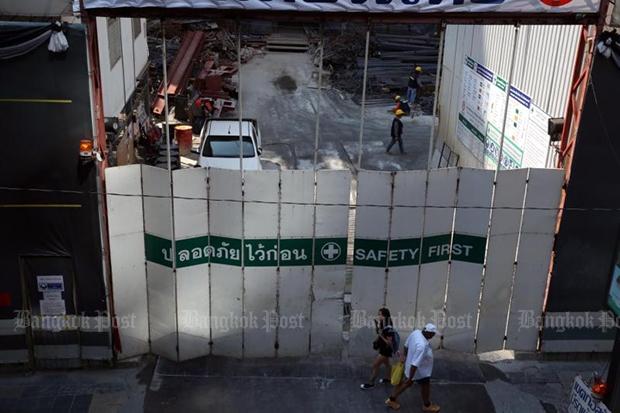Thailand: Poor Q4 growth points to slow recovery
Thailand’s economy expanded less than expected in the last quarter of 2016 and the government left its forecast for growth this year unchanged, indicating recovery will remain a slow process.
Growth in October-December was 0.4% from the previous quarter, on a seasonally-adjusted basis, below the 0.6% seen in a Reuters poll. The government revised July-September growth to 0.4%, from 0.6%. On an annual basis, the economy expanded 3.0% in the final quarter, matching the poll forecast.
The national planning agency, leaving its 2017 forecast at 3.0-4.0%, said expanding exports plus higher crop production and state spending will aid growth this year.
But analysts are doubtful the pace of growth can be much higher than 2016’s 3.2%. “We think growth in Thailand will disappoint,” Capital Economics wrote.
It said the exports will be held back by “lacklustre external demand as well as waning export competitiveness” and called the outlook for domestic demand “subdued”.
The National Economic Social and Development Board, the planner, raised its forecast for export growth this year to 2.9% from 2.4%.
Exports, a key growth driver, grew in 2016 for the first time in four years, but Thailand faces expected protectionism and capital outflow risks as the US Federal Reserve prepares to hike rates this year.
Weak private investment
Kobsidthi Silpachai, head of capital markets research of Kasikornbank in Bangkok, said “it looks like we are still in a soft patch for growth”.
Structural issues “weigh on Thailand’s ability to reach potential growth in excess of 4-5%”, he said.
While government spending was at a “good clip”, this did not seem to generate the crowding in from private investments, he added.
Growth in Southeast Asia’s second-largest economy has lagged regional peers since 2014, when the army seized power to end months of street protests. The junta has taken stimulus measures in a bid to lift domestic activity. Public consumption increased 1.5% in the December quarter from a year earlier, while exports rose 3.6%. Government investment rose 8.6% but private investment contracted 0.4%, NESDB data showed.
NESDB chief Porametee Vimolsiri said monetary policy would have to remain “accommodative” to support the economic recovery.
The central bank has kept its policy rate unchanged at 1.50% since a cut in April 2015. It next reviews monetary policy on March 29.
Pivotal tourism took a hit in the 2016’s last quarter as a Thai crackdown on cheap tour packages slashed the number of visitors from China, Thailand’s biggest market.
Tourist arrivals fell to 7.8 million from 8.2 million in July-September.
Source: http://www.bangkokpost.com/business/news/1201689/poor-q4-growth-points-to-slow-recovery


 Thailand
Thailand




